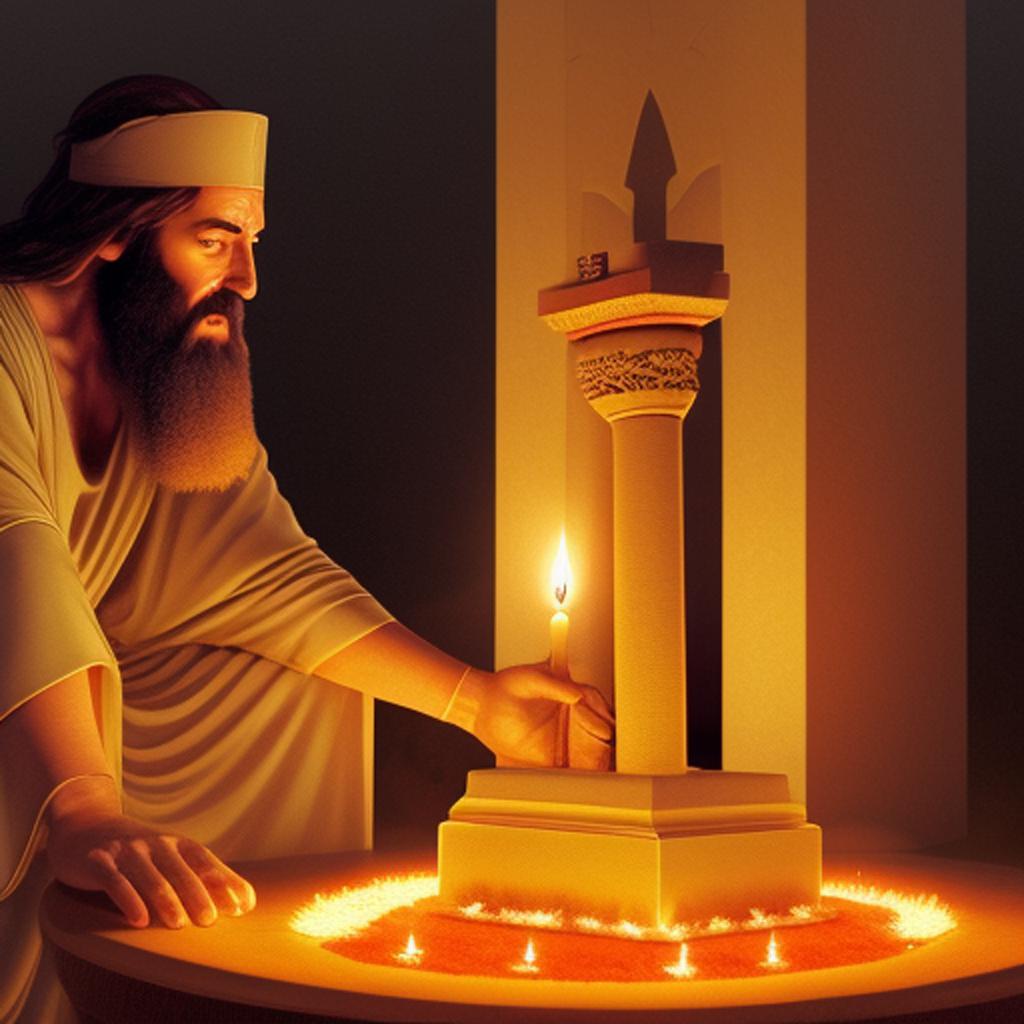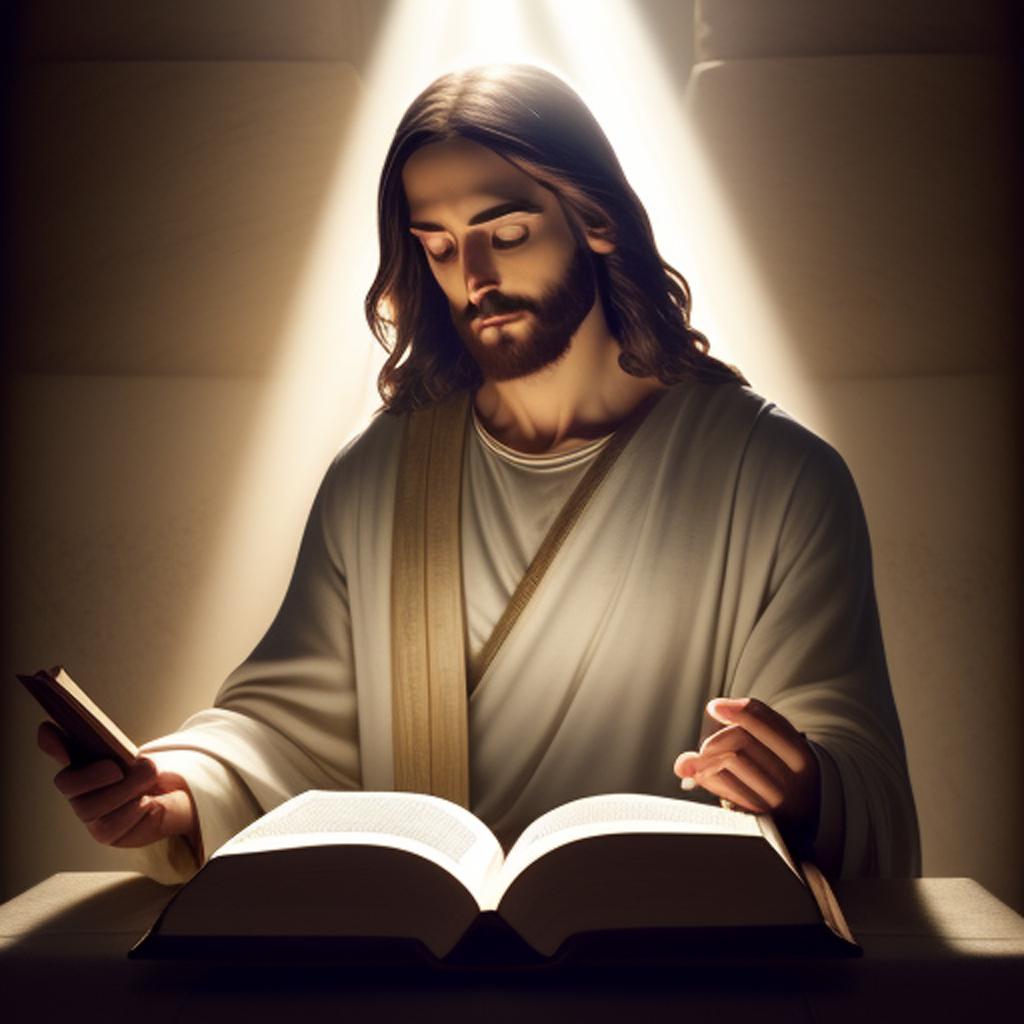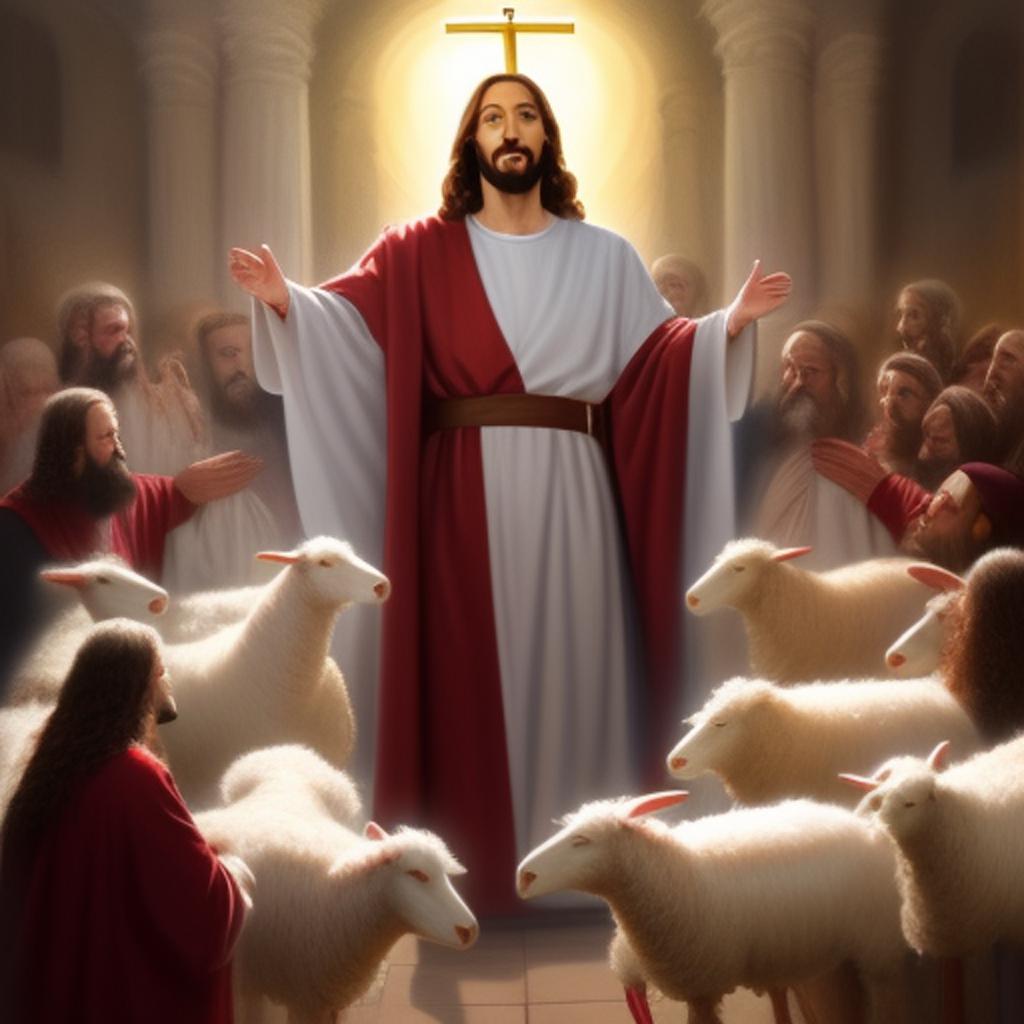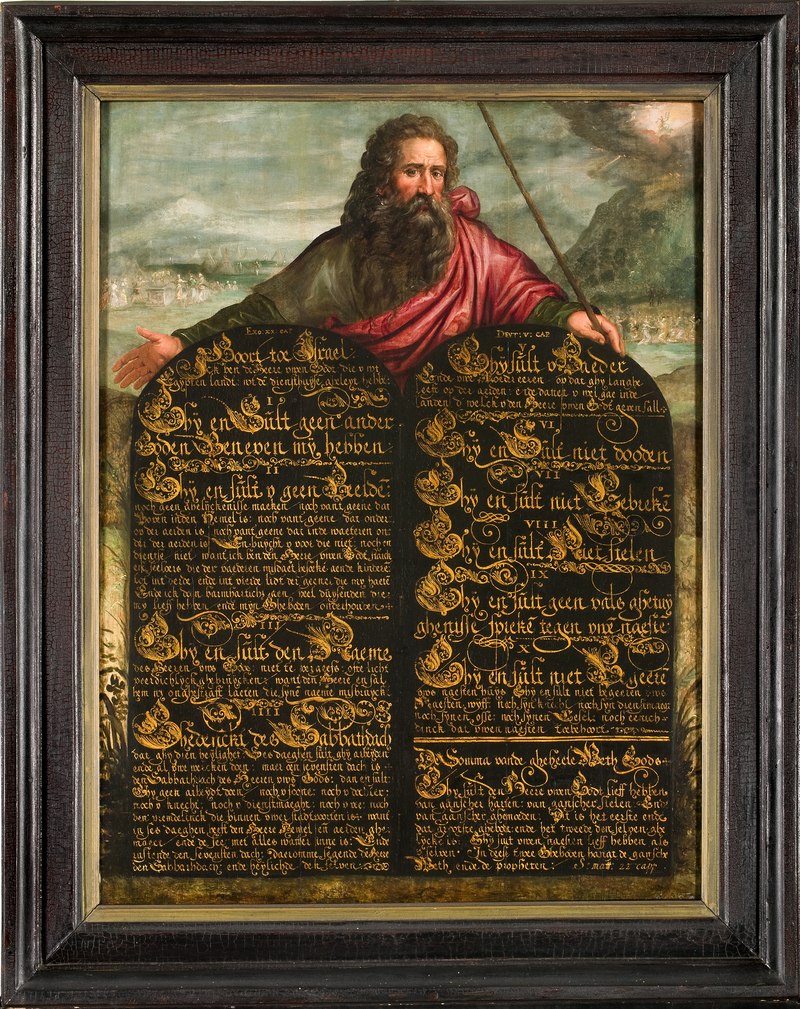Introduction
The book of Leviticus plays a crucial role in the Bible, providing instructions for the Israelites on how to approach and worship God. Leviticus 9 specifically focuses on the consecration of priests, highlighting the significance of this event in the larger context of God’s plan for salvation. This article will explore the connections between Leviticus 9, Jesus, and Messianic prophecies, shedding light on the theological significance of these connections.
In Leviticus 9, Moses calls Aaron, his sons, and the elders of Israel on the eighth day for the consecration of priests. Aaron is instructed to offer a young bull as a sin offering and a ram as a burnt offering. These sacrifices symbolize repentance and dedication, as Aaron and his sons first offer sacrifices for their own sins and then for the people.
The key moment in Leviticus 9 is when the glory of the LORD appears to the people. Fire comes out from before the LORD, consuming the offerings, signifying God’s acceptance of the sacrifices and the consecration of the priests. The people respond with reverence and fear, falling on their faces before God in worship.
This event marks the beginning of the priestly ministry in Israel, with Aaron and his sons acting as mediators between God and the people. It sets the stage for the establishment of the Levitical priesthood, which would play a vital role in the Israelites’ worship and relationship with God.
Connection between Leviticus 9 and Jesus
The consecration of priests in Leviticus 9 finds its ultimate fulfillment in the person of Jesus. In the New Testament, Jesus is portrayed as the High Priest who offers himself as the perfect sacrifice for the sins of humanity. Just as Aaron and his sons offered sacrifices for their own sins and for the people, Jesus offers himself as the sin offering and the burnt offering for all humanity.
Jesus’ sacrifice on the cross mirrors the sin offering and burnt offering in Leviticus 9. Through his perfect life and sacrificial death, Jesus fulfills the requirements for priesthood and atonement found in Leviticus 9. He becomes the mediator between God and humanity, offering forgiveness and reconciliation to all who believe in him.
Furthermore, the appearance of fire in Leviticus 9, representing the glory of the LORD, points to Jesus as the embodiment of God’s presence among his people. Just as the glory of the LORD appeared to the Israelites in Leviticus 9, Jesus, as the Son of God, reveals God’s glory and grace to the world. He is the true representation of God’s presence and the ultimate means by which humanity can approach and worship God.
Fulfillment of Messianic Prophecies in the Life of Jesus
The Old Testament is filled with Messianic prophecies, which are specific predictions about the coming Messiah. These prophecies point to Jesus and find fulfillment in his birth, life, ministry, death, and resurrection. For example, Isaiah 53 and Psalm 22 contain detailed descriptions of the suffering and sacrificial death of the Messiah, which are remarkably fulfilled in Jesus’ crucifixion.
The fulfillment of these Messianic prophecies in the life of Jesus affirms his identity as the promised Messiah. It demonstrates that Jesus is the one who was foretold throughout the Old Testament and that God’s plan for salvation is being fulfilled in him. The fulfillment of these prophecies provides compelling evidence for the trustworthiness of Scripture and the truth of the Christian faith.
In addition to the prophecies about his suffering and death, the Old Testament also contains prophecies about Jesus’ birth, lineage, and ministry. For example, Micah 5:2 predicts that the Messiah will be born in Bethlehem, which is fulfilled in Jesus’ birth in Bethlehem. Isaiah 7:14 foretells of a virgin giving birth to a child, which is fulfilled in Jesus’ miraculous birth to Mary.
The fulfillment of these prophecies in the life of Jesus not only affirms his identity as the Messiah but also demonstrates the divine orchestration of God’s plan. It shows that God had been preparing the world for the coming of Jesus for centuries, and that Jesus is the culmination of God’s redemptive work.
The Importance of Sacrifices in Leviticus 9
Leviticus 9 emphasizes the importance of sacrifices in the worship of God. The sin offering and burnt offering in Leviticus 9 served as a temporary means of atonement, foreshadowing Jesus’ ultimate sacrifice on the cross. These sacrifices were an integral part of the Israelites’ relationship with God, highlighting the significance of repentance, forgiveness, and dedication.
The sin offering symbolized repentance, as it allowed the Israelites to confess their sins and seek forgiveness from God. It was a way for them to acknowledge their wrongdoing and turn back to God. The burnt offering symbolized dedication and commitment to God, as the entire animal was consumed on the altar, representing the complete surrender of one’s life to God.
These sacrifices served as a constant reminder of the need for repentance, forgiveness, and dedication in the worship of God. They were not mere rituals but were intended to have a deep spiritual impact on the people. The sacrifices were meant to cultivate a heart of humility, obedience, and gratitude toward God.
The Significance of Repentance and Dedication
Repentance and dedication are key themes in Leviticus 9. The sin offering and burnt offering emphasized the importance of repentance and the surrendering of one’s life to God. Through the sacrifices, the Israelites acknowledged their sins and sought forgiveness from God. This act of repentance was essential for maintaining a right relationship with God.
Repentance involves recognizing one’s sinful nature, confessing one’s sins, and turning away from them. It is a deliberate choice to change one’s thoughts, attitudes, and behaviors in accordance with God’s will. Repentance is not a one-time event but an ongoing process of growth and transformation.
Dedication, on the other hand, involves surrendering one’s life to God and committing oneself to live in obedience to His commands. It is a total submission of one’s will, desires, and ambitions to God’s purpose. Dedication requires a deep faith in God and a willingness to trust Him with every aspect of one’s life.
In Leviticus 9, the Israelites were called to repent of their sins and dedicate themselves to God through the sacrifices. Similarly, believers today are called to repentance and dedication as they seek to live a life of holiness and obedience to God.
The Messianic Prophecies in the Old Testament
The Old Testament contains numerous prophecies about the coming Messiah. These prophecies point to Jesus as the fulfillment of God’s promise to send a Savior. They provide a glimpse into God’s plan for redemption and offer hope to the people of Israel.
One of the earliest Messianic prophecies is found in Genesis 3:15, where God promises that the offspring of the woman will crush the head of the serpent. This prophecy foreshadows Jesus’ victory over sin and evil through his sacrificial death and resurrection.
Another significant Messianic prophecy is found in Isaiah 9:6-7, where it is foretold that a child will be born who will be called “Wonderful Counselor, Mighty God, Everlasting Father, Prince of Peace.” This prophecy speaks of Jesus’ divine nature and his role as the ruler of an eternal kingdom of peace.
Other Messianic prophecies include Micah 5:2, which predicts that the Messiah will be born in Bethlehem, and Jeremiah 23:5-6, which speaks of a righteous Branch from the line of David who will reign as king.
These prophecies not only provide hope for the people of Israel but also point to the universal significance of Jesus’ mission. They reveal that Jesus is not only the Savior of Israel but also the Savior of the world, who brings salvation and reconciliation to all who believe in him.
The Fulfillment of Prophecies in the Life of Jesus
The life of Jesus is marked by the fulfillment of numerous Messianic prophecies. From his miraculous birth in Bethlehem to his teachings, miracles, and ultimately his sacrificial death and resurrection, Jesus fulfills the prophecies spoken of in the Old Testament.
Jesus’ lineage, being born into the family of David, fulfills the prophecy that the Messiah would come from the house of David. His miraculous birth to a virgin, as foretold in Isaiah 7:14, demonstrates his divine nature. The prophecies regarding Jesus’ ministry, such as Isaiah 61:1-2, which speaks of preaching good news to the poor and setting the captives free, find fulfillment in his teachings and actions.
Most importantly, Jesus’ sacrificial death on the cross fulfills the prophecies of a suffering servant who would bear the sins of humanity. Isaiah 53 provides a detailed description of the suffering and sacrificial death of the Messiah, which is remarkably fulfilled in Jesus’ crucifixion.
Through his death and resurrection, Jesus provides redemption and eternal life to all who believe in him. The fulfillment of these prophecies in the life of Jesus affirms his identity as the promised Messiah and provides undeniable evidence of the truth of the Christian faith.
Lessons from Leviticus 9 and Jesus’ Life
Leviticus 9 and the life of Jesus offer valuable lessons for believers today. Firstly, the importance of obedience, reverence, and worship is emphasized. Just as the Israelites were called to follow God’s instructions for sacrifices, believers are called to follow Jesus’ teachings and live a life of holiness and devotion to God.
Secondly, Leviticus 9 and Jesus’ life teach us the significance of repentance and dedication. The act of repentance allows us to acknowledge our sins, seek forgiveness, and turn away from sinful behaviors. Dedication involves surrendering our lives to God, committing ourselves to live in obedience to His will.
Furthermore, these passages highlight the importance of approaching God with holiness and reverence. The Israelites were instructed to distinguish between the sacred and the profane, treating God’s presence and worship with utmost respect. In the same way, believers are called to approach God with reverence and awe, recognizing His holiness and the privilege of being in His presence.
Lastly, Leviticus 9 and the life of Jesus remind us of the profound love and grace of God. The sacrifices in Leviticus 9 and Jesus’ ultimate sacrifice on the cross demonstrate God’s willingness to forgive and restore humanity. They show that God’s desire is for relationship and reconciliation with His creation.
In conclusion, Leviticus 9 holds great significance in the Bible, as it provides instructions for the consecration of priests and foreshadows Jesus as the ultimate High Priest and Savior. The connections between Leviticus 9, Jesus, and Messianic prophecies reveal the theological significance of these events and highlight the redemptive plan of God. As we study and reflect on these connections, may we seek repentance, dedication, and a deeper relationship with God, following in the footsteps of Jesus, our perfect High Priest.
#UltimateHighPriest #Leviticus9 #JesusFulfillment #MessianicProphecy #Redemption #OldTestament #BiblicalInterpretation #DivinePlan #BiblicalUnderstanding #HopeInChrist #SpiritualInsights #HighPriest



